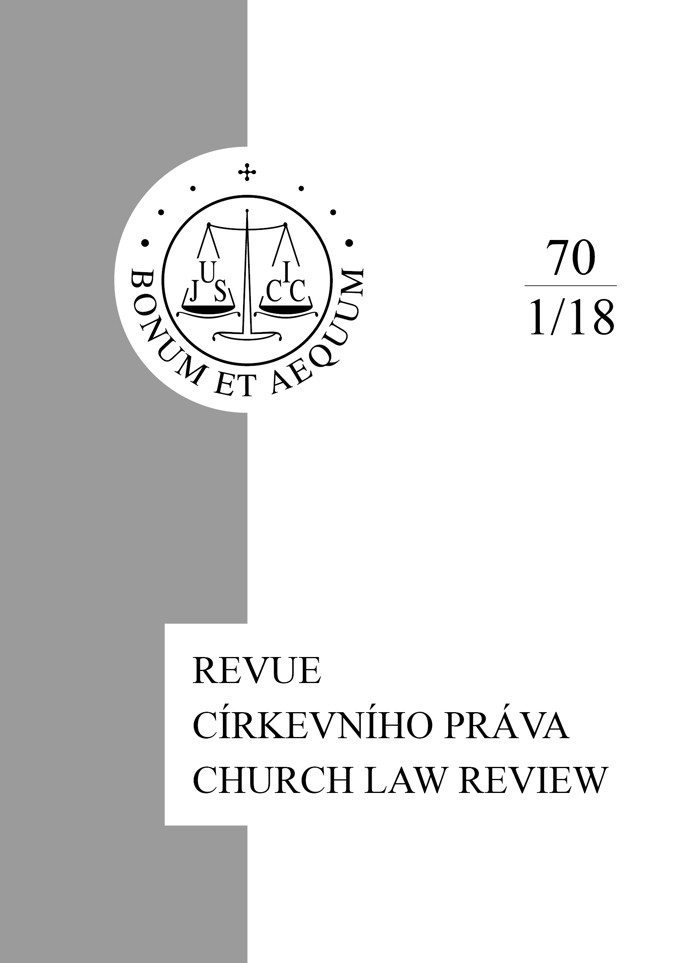Právní moc rozsudku v kanonickém právu
Legal Force of Judgment in Canon Law
Author(s): Antonín Ignác Hrdina, Miloš SzaboSubject(s): Canon Law / Church Law
Published by: Společnost pro církevní právo
Keywords: canon law; canon administrative law; legal force of a decision; decisions in status matters; legal remedies; appeal; restitutio in integrum
Summary/Abstract: In the article, the authors deal with the concept of legal force as an instrument of the legal certainty of the parties to the proceedings (here in particular, the judicial proceeding) in applicable canon law, supplemented by an outline of its development from the time of Roman procedural law to its reception. Contrary to secular law, however, in canon law, the judgments of the church tribunals in status matters (including marriages, which form the overwhelming majority of such cases) never come into force, because they are usually linked to sacraments; here, therefore, the principle of material truth is preferentially applied against the principle of legal certainty. Similarly, in canon law, individual administrative acts do not come into force, as (in contrast to secular law), in most cases, they are directed not towards otherwise unsubordinated subjects, but towards those who are administratively subordinate to the originators of these legal acts. Thus, legal force is limited to (fortunately) not too frequent judgments in criminal matters in canon law.
Journal: Revue církevního práva
- Issue Year: XXIV/2018
- Issue No: 70
- Page Range: 11-21
- Page Count: 11
- Language: Czech

